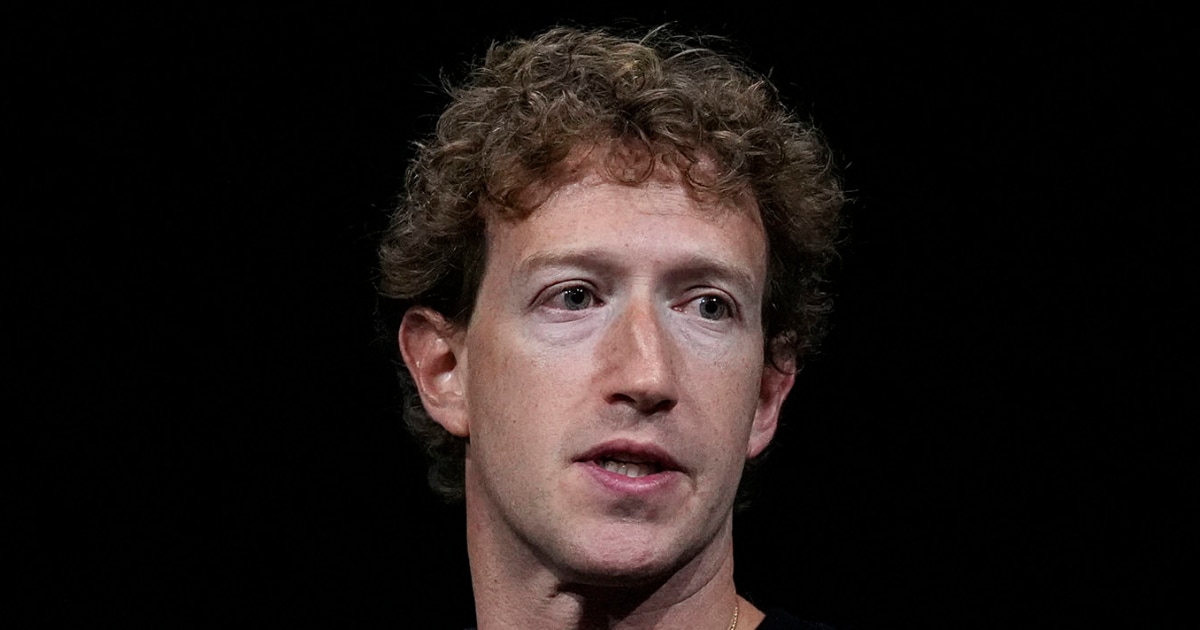Meta’s Bold Move: The End of DEI Programs
In a surprising turn of events, Meta has announced the discontinuation of its Diversity, Equity, and Inclusion (DEI) programs. This decisive move has sparked widespread discussions about the implications for corporate culture, social responsibility, and the future of workplace inclusivity. As organizations worldwide have embraced DEI initiatives as fundamental to their ethos, Meta’s decision raises critical questions about its commitment to these values and the broader impact on industry practices.
Understanding the Context Behind Meta’s Decision
Meta, formerly known as Facebook, has been at the forefront of conversations surrounding social media, data privacy, and workplace diversity. Over the past few years, the tech giant has invested heavily in DEI programs, aiming to create a more inclusive workforce and address systemic inequalities. However, the recent announcement to end these initiatives has left many puzzled.
There are a few potential reasons behind this bold move:
- Financial Reassessments: With economic pressures mounting, companies are often forced to reevaluate their expenditures. Meta’s decision could stem from a need to cut costs in response to a challenging market environment.
- Changing Corporate Priorities: The focus on DEI may have shifted as Meta navigates other pressing issues, such as regulatory scrutiny and public backlash over privacy concerns.
- Perceived Effectiveness: Meta may have assessed the effectiveness of its DEI programs and concluded they did not yield the anticipated results, prompting a reevaluation of their approach.
The Implications for Corporate Culture
The end of DEI programs at Meta could have far-reaching implications for the company’s corporate culture. Historically, DEI initiatives have been designed to foster a sense of belonging, enhance employee engagement, and ultimately drive innovation. With their discontinuation, several key areas may be impacted:
1. Employee Morale and Engagement
The removal of DEI programs may lead to a decline in employee morale. Many employees value a workplace that prioritizes diversity and inclusivity, and the absence of these initiatives may signal to staff that their contributions and identities are not valued. This could result in:
- Increased turnover rates as employees seek more inclusive environments elsewhere.
- Decreased productivity due to a lack of support and recognition for diverse perspectives.
2. Reputation and Brand Image
Meta’s reputation is already under scrutiny due to various controversies. Discontinuing DEI programs may further damage its public image, leading to perceptions of the company as out of touch with contemporary social issues. This could have implications for:
- Consumer trust, as customers increasingly favor brands that align with their values.
- Recruitment efforts, making it harder to attract top talent who prioritize inclusivity in the workplace.
3. Industry Standards
As one of the leading tech companies, Meta’s policies often set precedents within the industry. The decision to end DEI programs may embolden other organizations to reconsider their commitments, potentially leading to a broader trend of retrenchment in DEI efforts across various sectors.
The Future of Workplace Inclusivity
With Meta’s announcement reverberating throughout the corporate landscape, it is crucial to consider what the future holds for workplace inclusivity. Here are some potential outcomes:
1. A Shift to Alternative Models
While Meta’s decision may suggest a retreat from DEI initiatives, it could also prompt organizations to explore alternative models of inclusivity. This might include:
- Grassroots Initiatives: Employees may take the lead in fostering inclusivity through informal networks and peer-led programs.
- Focus on Intersectionality: Companies might adopt a more nuanced approach to diversity, considering the intersection of various identities and experiences.
2. Increased Accountability
As DEI programs face scrutiny, organizations may be called to demonstrate the tangible impacts of their diversity initiatives. This could lead to:
- More robust data collection and analysis to measure the effectiveness of diversity strategies.
- A push for transparency in reporting diversity metrics and progress.
3. Collaboration with External Partners
Organizations may seek partnerships with external organizations dedicated to promoting diversity and inclusion. This could help maintain a commitment to these values while alleviating the financial burden of internal programs.
Balancing Corporate Interests with Social Responsibility
As Meta navigates the challenges of the corporate landscape, it must balance its business interests with social responsibility. The discontinuation of DEI programs raises important questions about the role of corporations in addressing societal issues:
- Corporate Accountability: Companies are increasingly being held accountable for their societal impact. Meta’s decision may lead to heightened scrutiny from stakeholders demanding corporate social responsibility.
- Long-Term Vision: Organizations must consider the long-term implications of their actions on their workforce and society at large. A short-term focus on cost-cutting may undermine future growth and innovation.
The Path Forward: A Call for Reflection and Action
In conclusion, Meta’s bold move to end its DEI programs has ignited essential discussions about the future of workplace inclusivity and corporate responsibility. While this decision may seem like a retreat, it presents an opportunity for reflection and reimagining how organizations can foster diverse and inclusive environments.
As industry leaders, employees, and stakeholders engage in this dialogue, it is crucial to advocate for innovative, effective, and sustainable approaches to diversity and inclusion that align with the values of today’s workforce. The future of workplace inclusivity may depend on a collective commitment to prioritizing these values, regardless of the challenges that lie ahead.
Ultimately, the conversation surrounding DEI programs at Meta and beyond should not end with this announcement. Instead, it should serve as a catalyst for deeper examination and renewed commitment to creating workplaces where everyone feels valued, respected, and empowered to contribute their unique perspectives.
See more Business Focus Insider Team

